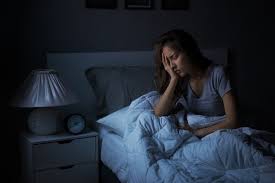Introduction:
In the vast expanse of the night, where dreams are supposed to flourish and rest is meant to rejuvenate, there exists a silent cry for help amidst the darkness. This cry comes from the millions who find themselves entangled in the web of insomnia, where sleep remains elusive and the night feels like an endless expanse of wakefulness. Welcome to the world of S.O.S. Sleep, where individuals navigate the treacherous waters of insomnia in search of a reprieve from the relentless grip of sleeplessness. In this article, we delve into the complexities of insomnia, exploring its causes, effects, and strategies for navigating the turbulent seas of sleeplessness.
Understanding Insomnia:
An explanation of insomnia is that it is a sleep disorder distinguished by the inability to achieve restorative sleep, trouble falling asleep, or trouble remaining asleep, despite having the capacity to do so. It is more than just a fleeting inability to sleep; chronic insomnia persists for weeks, months, or even years, impacting every aspect of an individual's life. Avariety of manifestations can be observed in insomnia; these include maintenance insomnia (recurrent awakenings during the night), onset insomnia (challenges initiating sleep), and terminal insomnia (early morning awakenings).
Exploring the Causes:
The causes of insomnia are multifaceted and often intertwined, encompassing a wide array of biological, psychological, and environmental factors. Stress and anxiety are common triggers, as the demands of daily life and incessant worries plague the mind, making it difficult to relax and unwind. In a similar vein, several lifestyle elements can contribute to the development of insomnia: irregular sleep patterns, excessive screen usage prior to bedtime, and the ingestion of stimulants such as caffeine or nicotine, which can disturb the body's inherent sleep-wake cycle.
Insomnia symptoms may be further aggravated by underlying health conditions such as depression, anxiety disorders, chronic pain syndromes, sleep disorders (e.g., sleep apnea), or restless legs syndrome. Furthermore, hormonal imbalances, specific medications, and environmental elements like light or noise pollution can all contribute to sleep disturbances, thereby reinforcing the cycle of insomnia and impeding the attainment of restorative sleep.
Effects on Health and Well-being:
Insomnia has profound ramifications that transcend ordinary sleep deprivation, influencing an individual's mental, physical, and emotional well-being. Chronic sleep deprivation can have physiological ramifications, including compromised immune function, heightened susceptibility to cardiovascular ailments, and progressive metabolic disorders including obesity and diabetes. Cognitive dysfunction is also observed, manifesting in challenges with information retention, concentration, and decision-making.
Furthermore, insomnia significantly impairs mental well-being, frequently worsening symptoms associated with mood disorders, anxiety, and depression. Individuals who are afflicted with chronic sleep deprivation frequently experience irritability, frustration, and emotional instability, which have detrimental effects on their personal relationships, work performance, and overall quality of life. The chronic nature of insomnia can contribute to feelings of despondency and hopelessness, which in turn prolong the effort to achieve a state of tranquility and restful slumber.
Navigating the Turbulent Seas of Sleeplessness:
Navigating insomnia requires a comprehensive approach that addresses both the underlying causes of sleep disturbances and the symptoms themselves. While there is no one-size-fits-all solution, incorporating a combination of lifestyle modifications, relaxation techniques, and cognitive-behavioral strategies can help individuals navigate the turbulent seas of sleeplessness and reclaim the tranquility of the night.
Establishing a Consistent Sleep Schedule:
A regular sleep schedule can facilitate improved sleep patterns and aid in regulating the body's internal clock. Even on weekends, strive to go to bed and rise up at the same time each day in order to maintain a regular sleep-wake cycle.
Creating a Relaxing Bedtime Routine:
Before bed, participate in calming activities to encourage your body to shut down. Engaging in relaxation techniques such as deep breathing or meditation, taking a warm bath, or perusing a book in dim lighting are all potential approaches.
Enhancing the sleep environment:
Establishing a cozy and favorable sleeping space can have a substantial influence on the quality of one's sleep. To enhance sleep quality, optimize elements including bedroom temperature, lighting, and pollution levels.
Limiting Stimulants and Screen Time:
Avoid consuming stimulants such as caffeine and nicotine close to bedtime, as they can interfere with sleep quality. In the same way, restrict screen time prior to bed, as the blue light emitted by electronic devices can interfere with the synthesis of the hormone melatonin, which is responsible for regulating sleep.
Practicing Relaxation Techniques:
By including relaxation techniques in your bedtime regimen, you can assist in preparing for sleep and calming the mind. By reducing anxiety and facilitating relaxation through progressive muscle relaxation, guided imagery, and deep breathing exercises, it is possible to fall slumber more easily.
CBT-I stands for cognitive-behavioral therapy for insomnia. CBT-I is an exceptionally efficacious psychological intervention in the management of insomnia. By identifying and modifying negative thoughts and behaviors that contribute to sleep disturbances, this structured therapy assists clients in overcoming insomnia and developing healthier sleeping patterns.
If insomnia continues to persist despite the implementation of self-help strategies, it may be prudent to contemplate seeking professional assistance from a sleep specialist or healthcare provider. A thorough assessment can be performed in order to identify the fundamental elements that contribute to insomnia and to suggest suitable therapeutic alternatives, such as additional psychological interventions or medication.
Conclusion:
As we navigate the turbulent seas of sleeplessness in search of relief and reprieve, it is essential to remember that the journey towards restful sleep is not one traveled alone. By understanding the underlying causes of insomnia and implementing evidence-based strategies for improving sleep quality, individuals can reclaim the tranquility of the night and emerge victorious in the battle against sleeplessness.
Through a combination of lifestyle modifications, relaxation techniques, and cognitive-behavioral strategies, individuals can navigate the treacherous waters of insomnia and find solace in the embrace of restorative sleep. Remember, you are not alone in your struggle with insomnia, and there is support and guidance available to help you navigate the stormy seas of sleeplessness and reclaim the tranquility of the night.




